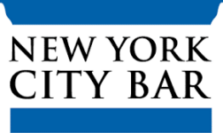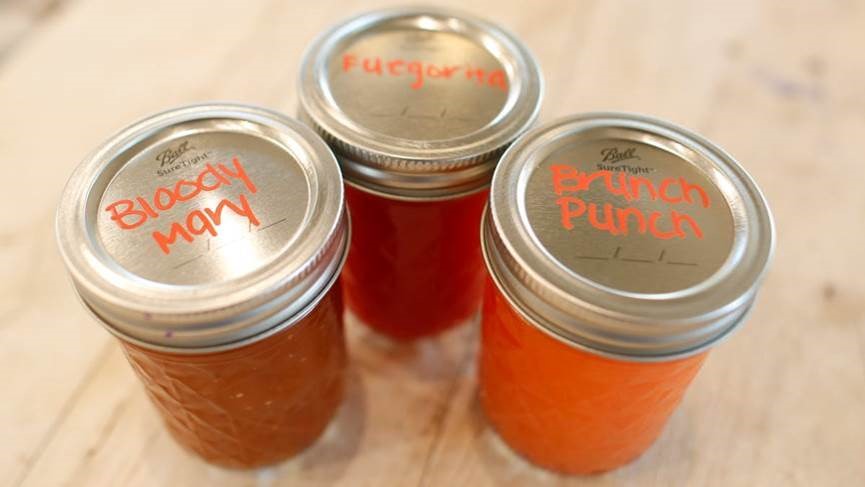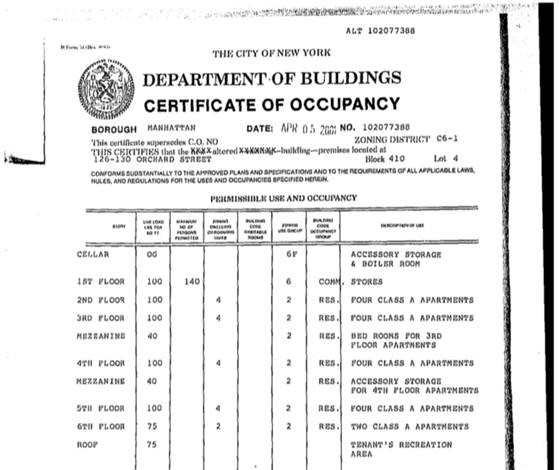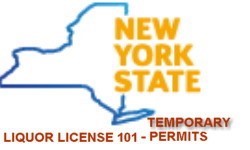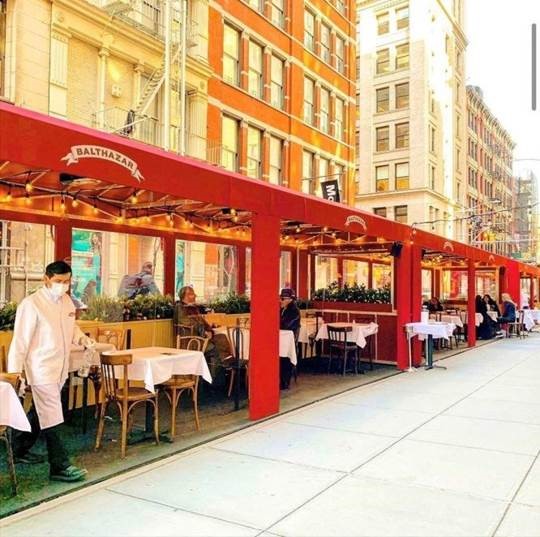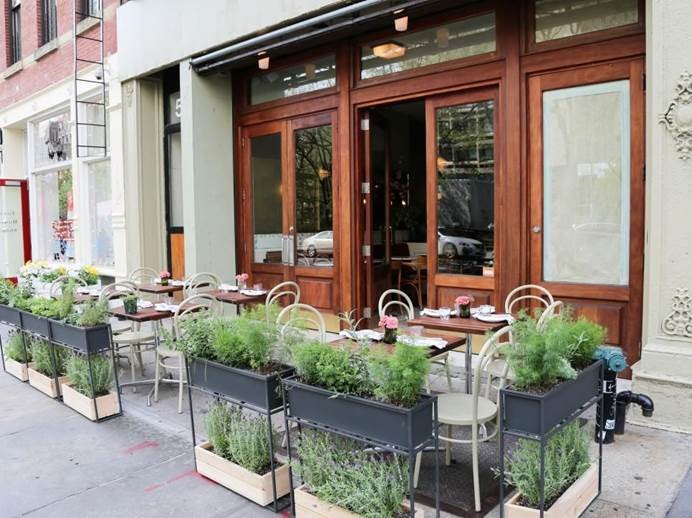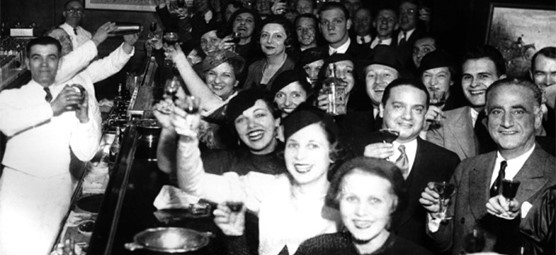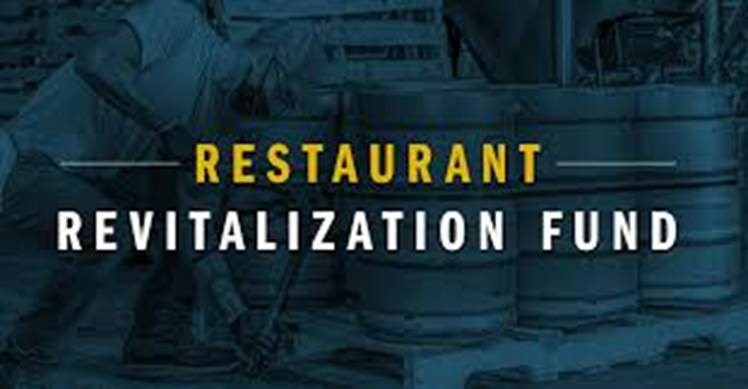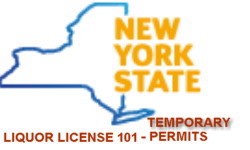The New York City Bar Association is hosting a program, “Opening a Restaurant in New York City: Legal Issue Bootcamp,” on Thursday, June 1, 2022 from 9:00 am until 1:00 pm. Donald Bernstein of Bernstein Redo & Savitsky, P.C. will be one of four presenters/panelists, and will be speaking on the subject of New York liquor licenses. Other topics will include corporate formation, restaurant leases, and labor and employment issues affecting restaurants. The program is sponsored by the Hospitality Committee of the Bar Association.
Last week, New York State amended the Alcoholic Beverage Control Law to allow for cocktails to go. Under the new law, any retail licensee may sell any product it sells at retail for take-out or delivery. Liquor or wine to go must be accompanied by a “substantial food item.” The alcoholic beverage must be packaged in a container with a secure lid or cap sealed in a manner designed to prevent consumption without removal of the lid or cap by breaking the seal. Take out and delivery may only occur during the licensee’ permitted hours of operation. The price for the to go drink must be the same as if it was consumed on the premises. No bottles of wine or liquor may be sold to go. Delivery must be to a residential address and to a person 21 years of age or older as shown by legally acceptable ID. In furtherance of this new law, the New York State Liquor Authority issued a new Advisory effective today, “Guidance on Sale of Wine and Liquor to Go by On Premises Retail Licensees.” That Advisory defines what the new law means by “substantial food item,” which is “sandwiches, soups or other foods, whether fresh, processed, precooked or frozen.” Wings, salads and hot dogs are also sufficient. The Advisory states, however, that a bag of chips, bowl of nuts, or candy alone are not sufficient. The Advisory also warns that an “unreasonably small portion of soup, a serving of canned beans, a handful of lettuce, or charging a small extra fee for an alcoholic beverage in lieu of a food item not actually ordered or delivered will be treated as a violation of the law.” The Advisory also reiterated that bottles of liquor or wine remain prohibited. Obvious efforts to circumvent that law, such as transferring the contents of a bottle to the same or equivalent bottle will be treated as a violation of the law. The new statute also states that open carry laws are not changed. The SLA Advisory can be viewed here:
https://sla.ny.gov/system/files/documents/2022/04/advisory_2022-2_-_sale_of_wine_and_liquor_to-go_by_on_premises_retail_licensees.pdf
The New York State Liquor Authority adopted a proposed Advisory today that dispenses with the requirement to have a Certificate of Occupancy, or Temporary Certificate of Occupancy, in order for a new on premises liquor license to be issued. Previously, having a C of O or TCO, or in some cases, a Letter of No Objection issued by the Department of Buildings, was an absolute requirement to obtain a license. However, due to delays at the Buildings Department, the SLA adopted this new policy on a temporary basis. If a license is issued without the proper C of O, the SLA will require that the C of O be obtained prior to the first renewal of the license. This is an important development for new hotels and restaurants that are ready to open but delayed due to backlogs at the Department of Buildings.
Legislation was just signed into law last night allowing for the issuance of temporary retail permits for new liquor license applications in New York City. Prior to this law, temp permits were only permitted within the city on a transfer but not a new application. There are significant restrictions, however. The permits in the city on new applications apply to beer and wine applications, or those where the 500 foot rule does not apply. Where the 500 foot rule does apply, which is the great majority of the time, then the temp permit may only issue if the premises have been licensed within the past two years and was not suspended or revoked, and the State Liquor Authority Administrative Law Judge after conducting a 500 foot rule hearing finds that it is in the public interest to approve the license. If those conditions are satisfied on a 500 foot rule matter, there are restrictions on the method of operation while operating under the temp permit that are imposed by the law. Hours are restricted to a midnight closing, background recorded music only, and no dancing. Please keep in mind that the approval and issuance of a temporary permit is not an assurance that the final application will be approved. Feel free to speak with us regarding any questions on this new and important law.
During 2020, emergency temporary regulations were issued by the State and City allowing for outdoor and street seating under the Open Restaurants program. This allowed seating on public sidewalks and streets, including areas that had not been zoned for outdoor use. Now the City is in the process of a permanent successor to the Open Restaurants program which involves environmental review and hearings. However, in October, a group of 22 residents filed a lawsuit against the City. They claim that in issuing a negative environmental impact report the City “ignored profound environmental effects wrought by the temporary open restaurant program which effectively ceded substantial swaths of precious public space to the interests of a single industry and created profound externalities which adversely affected the quality of the daily lives of petitioners.” Specifically, the residents complained about noise, litter, vermin and congestion, claiming that the outdoor seating has grown out of control and is a public health hazard. The suit claims that the West Village, for example, has become “lawless and sometimes downright dangerous.” The lawsuit asks the court to annul and set aside the negative environmental impact declaration and require the City to conduct a full impact statement.
Effective as of July 7, 2021, the New York State Liquor Authority issued a new Guidance for Use of Outdoor Municipal Property. For those holding a liquor license and operating outdoor space under a municipal permit granted pursuant to the Executive Order issued in June 2020, they may continue to operate such outdoor seating provided that on or before October 5, 2021 such licensee notifies the SLA (email to municipalexpansion@sla.ny.gov) with their main license serial number in the subject line, which email should include a copy of the municipal outdoor seating permit (issued by DOT in the City of New York), and a block plot diagram showing the municipal property incorporated into the licensed premises. No SLA response is required. If you do not have municipal permission prior to July 7, 2021, then you are first required to notify the municipality (community board in the City of New York) on a form available on the SLA website, and after 30 days have passed, or if the municipality has waived the notice, the licensee must email the SLA and include the items referred to above as well as proof of receipt of the municipal notice or waiver thereof. If the SLA does not disapprove within 5 days, the application to use municipal space is deemed approved. Please contact our office with any questions.
The New York State Liquor Authority issued a revised draft Advisory today labeled “Contracts That Compensate A Third Party Provider (“TPP”) Of Good Or Services With a Percentage of The Licensee’s Sales, Profits or Revenues.” The draft is available at:
Replacing the failed draft Advisory issued in late 2019, this new version intends to cover all situations where a TPP shares revenue with a retail licensee, such as landlords, managers, delivery services, e-commerce, and internet platforms that provide advertising or accept or forward food and beverage orders, promotion companies, fulfillment centers, and others similarly situated. The draft confirms that in most cases a flat fee arrangement is compliant with the law and would not require any notice or filing with the SLA if it is commercially reasonable in the view of the SLA. Payment to the TPP of 10% or less also does not require any filing. All other TPP percentage agreements require the license holder to co-license the TPP. It contains a number of other notice and filing requirements. This Advisory, if passed, would be retroactive and apply to TPP percentage agreements already in place. The public has two weeks to comment on this draft, and it will be discussed by the SLA at its full board meeting on May 26, 2021.
Long awaited change is finally coming. Governor Cuomo announced today that the 12 a.m. food and beverage service curfew will be lifted for outdoor dining on May 17 and for indoor dining on May 31. In another important development, starting on Monday, May 3, seating at bars will also be permitted. Food must still be ordered with an initial drink order, though the State Legislature is about to eliminate that unpopular requirement ridiculed by many in the industry. The infamous “Cuomo chips” will be no more. The 1 a.m. curfew for catered events where attendees have provided proof of vaccination status or a recent negative COVID-19 test result will be lifted beginning May 17, with the curfew for all catered events set to be lifted May 31.
The American Rescue Plan Act was signed into law in March. This long overdue federal legislation includes a $28.6 billion restaurant revitalization fund to provide direct grant support for restaurants hit by the COVID pandemic. Food service and drinking establishments are eligible for this, including caterers, that are not an affiliated group with more than 20 locations. Publicly traded companies are not eligible. The eligible expenses include payroll, mortgage, rent, utilities, supplies, food and other expenses from February 15, 2020 to the end of 2021 deemed essential by the SBA. For restaurants in operation before 2019, take your 2019 gross revenue, deduct 2020 gross revenue and total amount of PPP loans to determine amount of grant funding. For restaurants that opened in 2019, it is the average 2019 monthly gross revenues times 12, less 2020 revenues and PPP loans. Final regulations are being determined by the SBA.
We have received many inquiries over the past two months regarding temporary retail permits for new liquor license applications. This was due, in part, to a posting by the NYC Hospitality Alliance which some read to say that these retail permits are now available, and that has created confusion. A temporary retail permit is issued in New York while a liquor license application is pending, and allows the holder to purchase (COD only) and sell alcohol as if the holder had a liquor license. However, to be clear, the temporary retail permit is only available within the City of New York if the applicant is filing for a transfer of an existing license and certain specific requirements are met. It is NOT available in New York City for a new license application, that is for space that is not currently licensed and is not a transfer. Outside of the city, if the 500 foot rule does not apply, temporary retail permits are, however, available for new license applications. The change to allow this within city limits has been proposed and strongly advocated by the NYC Hospitality Alliance and others in the industry, but it is not the law currently. We will of course be following this and will update as necessary. Please call us if you have any questions about temporary permits.

